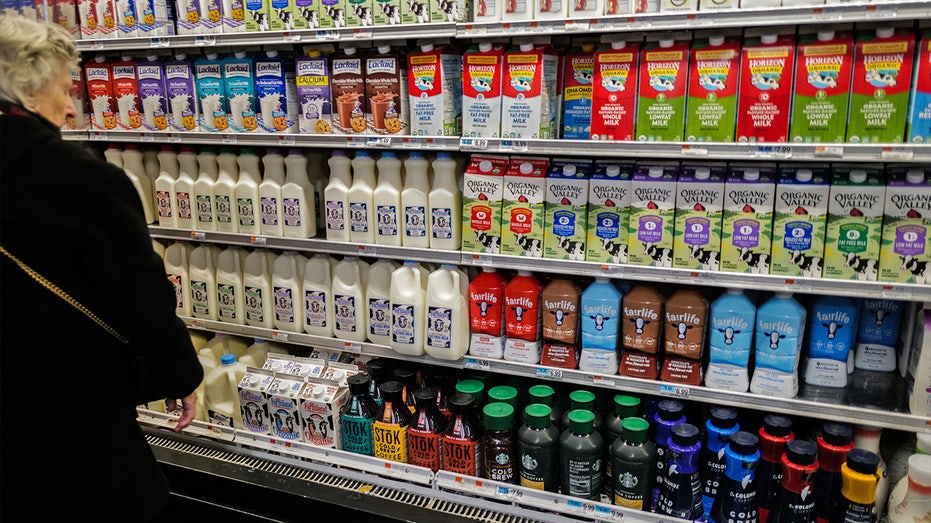Boston officials are weighing whether the city should open government-owned grocery stores to make fresh, affordable food more accessible — an idea that’s gaining traction in New York City.
After holding a hearing earlier this month, city councilors agreed to study how other cities have implemented municipal markets to close gaps in food access.
Councilors Ruthzee Louijeune and Liz Breadon, who called for the hearing, did not respond to multiple requests for comment from Fox News Digital.
ATLANTA’S CITY-RUN GROCERY SEES EARLY SUCCESS, SPARKING DEBATE OVER GOVERNMENT’S ROLE
While Boston leaders are still exploring the idea, Atlanta has already put the concept into practice, opening its first city-run grocery store earlier this year.
Atlanta Mayor Andre Dickens told Fox News Digital that Azalea Fresh Market has served more than 20,000 customers since opening its doors on Aug. 28.
“In its first month, fresh produce made up 11.6% of total sales, exceeding the national average of 10% and highlighting a community demand for healthier food options,” Dickens said, adding that the turnout shows how strong the need was in a neighborhood “long underserved by grocers.”
“Azalea Fresh Market is proof that when we work together as a city, we can deliver real solutions that change lives,” he added.
The early success in Atlanta comes as similar ideas gain momentum elsewhere, including in New York City, where Democratic mayoral candidate Zohran Mamdani has championed city-owned grocery stores as part of his controversial campaign platform.
Mamdani, a 33-year-old democratic socialist upstart, has placed affordability at the center of his agenda to lead America’s largest city. He has campaigned on free buses, rent freezes for tenants in rent-stabilized apartments and city-owned grocery stores.
MAMDANI’S PUBLIC GROCERY STORES MAY HAVE DEVASTATING EFFECTS ON CITY’S FOOD SUPPLY
But not everyone is convinced city-run grocery stores are the right solution.
Ryan Bourne, a top economist at the libertarian-leaning Cato Institute think tank, told Fox News Digital that “Boston’s flirtation with city-run supermarkets is a bad idea.”
“Government doesn’t become Costco by proclamation,” he said. “Private stores have specialized knowledge about their sector and a profit incentive that encourages them to be efficient. Without those things, a public grocer would likely run things badly, it would only ‘work’ to deliver low-priced food through extensive permanent subsidies.”
Bourne warned that taxpayer-backed subsidies or tax breaks could turn a public grocery into “a badly targeted, in-kind welfare scheme,” adding that heavier subsidies to cut prices could lead to “in-store queues, empty shelves from shortages, and products being resold on black markets.”
TREASURY’S BESSENT WARNS NYC: NO BAILOUT UNDER MAMDANI – ‘DROP DEAD’
Judge Glock, director of research and a senior fellow at the Manhattan Institute, told Fox News Digital that “city-run grocery stores, like most city-run businesses, tend to do poorly.” He pointed to a government-backed store in Kansas City that shut down despite a nearly $20 million investment.
“There is little justification for the government competing with for-profit grocery stores,” Glock said, noting that supermarkets already operate on some of the slimmest profit margins of any major business. “Further eroding those profits through subsidized competition would only make it harder for regular grocery stores to provide food for their customers.”
John Peluso, a research associate at the Heritage Foundation’s Thomas A. Roe Institute for Economic Policy Studies, told Fox News Digital that government-run grocery stores are “ineffective at reducing the overall price of groceries.”
KELLY LOEFFLER: MAMDANI’S SOCIALIST PLANS THREATEN NYC’S BUSINESS CORE
“They require taxpayer subsidization to operate at low margins in areas of low profitability — and those costs are ultimately passed on to the taxpayer,” he said.
He added that if cities truly want to improve food access, they could achieve more by easing taxes and regulations for all grocers. “If municipalities reduced or eliminated taxation and regulations for everyone, free-market entrepreneurs would flood into cities like Boston, eliminating the issue at its source,” Peluso added.
Peluso also argued that community-based organizations, not governments, are better equipped to help low-income families.
“Government grocery stores are much less efficient at helping the poor than food pantries or other local nonprofits,” he said, calling the city-run model “a kind of Soviet-style market meddling.”
























